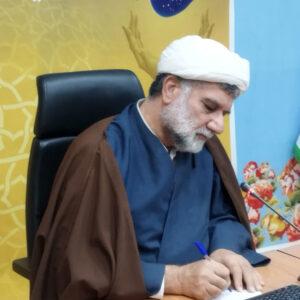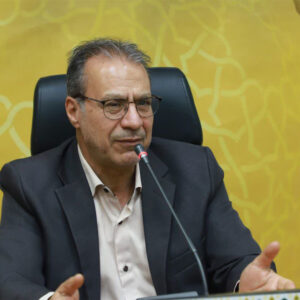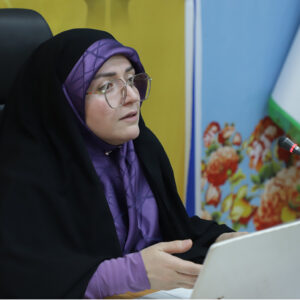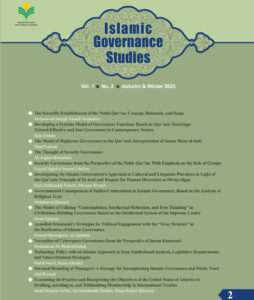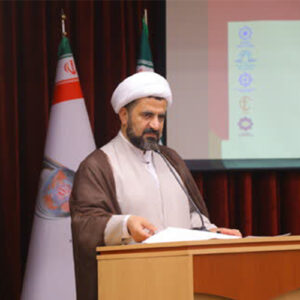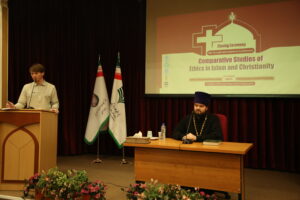The Second International Conference on Comparative Studies of Ethics in Islam and Christianity concluded in Qom with the participation of prominent religious scholars from many different countries.
According to the Public Relations Office of the Islamic Propagation Office of the Seminary of Qom, the conference — which began on Tuesday with the attendance of distinguished religious thinkers — came to an end on Thursday, October 17, 2025.
In his speech, Dr. Mohammad Sahhaf Kashani, the Scientific Secretary of the Conference, stated that the purpose of organizing the six thematic commissions of this international event was to practice coexistence and counter extremism by emphasizing shared moral values among religions. At the closing ceremony, 18 interreligious collaborative works were unveiled.
A faculty member of the Research Institute for Islamic Culture and Thought, Kashani elaborated on the goals of the conference, noting:
“This event was organized to promote coexistence and cooperation among the world’s major religions in pursuit of peace and dialogue based on the ‘common word’ — a direct command from the Holy Quran: ‘Come to a common word between us and you’ (Quran 3:64).”
He emphasized that ethics is the most significant area of commonality between Islam, Christianity, Judaism, and other divine religions, and therefore was chosen as the central theme of the dialogue.
Referring to contemporary global challenges, Kashani remarked:
“Today’s world is full of violence, war, and extremism. Radical movements within various religions have rapidly expanded, spreading fear and hatred.”
He added:
“If we do not sit together and engage in dialogue, fear and mistrust will replace understanding. As Imam Ali (a) said, ‘People are enemies of what they are ignorant of.’”
In conclusion, the scientific secretary announced the unveiling of eighteen collaborative works produced by one hundred Muslim and Christian scholars from 25 countries worldwide.
He noted that these works address practical and contemporary moral challenges faced by humanity today.
The topics of the collaborative projects include:
- Ethics of warfare and the conduct of war
- Human–animal relationship
- Global positive ethics
- Rights of non-adherents and interfaith interaction
- Virtuous morals and good conduct
- Medical ethics
- Environmental ethics


